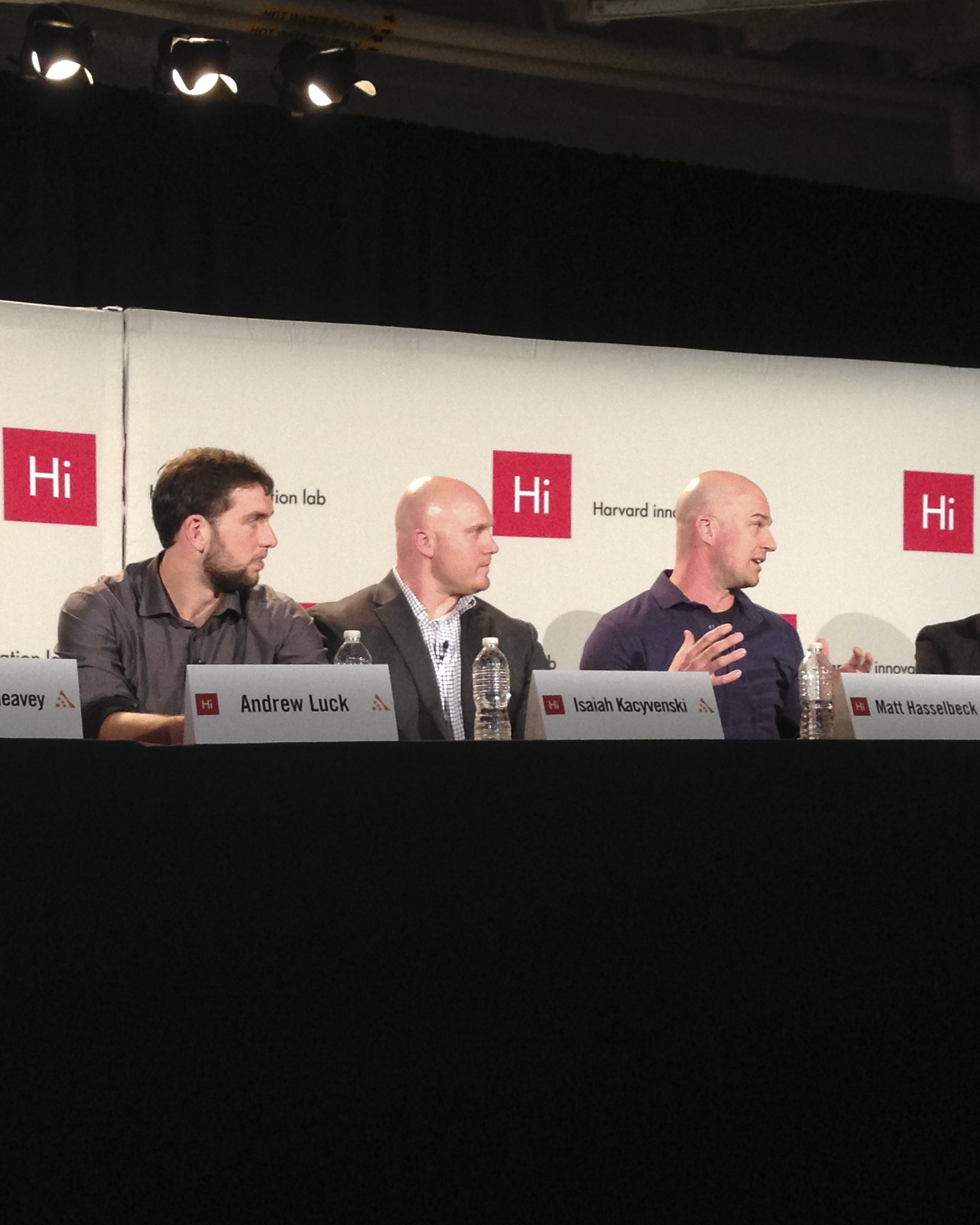
News
HMS Is Facing a Deficit. Under Trump, Some Fear It May Get Worse.

News
Cambridge Police Respond to Three Armed Robberies Over Holiday Weekend

News
What’s Next for Harvard’s Legacy of Slavery Initiative?

News
MassDOT Adds Unpopular Train Layover to Allston I-90 Project in Sudden Reversal

News
Denied Winter Campus Housing, International Students Scramble to Find Alternative Options
Professional Athletes Discuss Intersection of Sports, Tech at I-Lab


A panel of seven professional athletes, including two active NFL quarterbacks, agreed that technology will play an increasingly larger role in sports at a discussion at the Harvard Innovation Lab in Allston on Thursday.
According to the panelists, professional and ammateur athletes will benefit from upcoming technological inventions that focus on improved data related to health and physical performance. More specifically, they said, comprehensive numerical analysis on everything from heart rate to muscle exertion will allow coaches and players to optimize athletic ability and minimize injury.
Isaiah J. Kacyvenski ’00, a retired NFL linebacker who now serves as chairman of the sports advisory board at the sports technology firm MC10, joined fellow board members, including Indianapolis Colts quarterback Andrew A. Luck, Colts backup quarterback Matt M. Hasselbeck, and U.S. Olympic women’s ice hockey four-time medalist Angela M. Ruggiero ’02-’04.
Retired U.S. women’s soccer star Kristine M.L. Heavey, professional lacrosse standout Paul Rabil, and former Major League Soccer Most Valuable Player Taylor Twellman, all also MC10 board members, also spoke at the event. Harvard Business School professor Anita Elberse moderated the discussion.
MC10 is a Cambridge-based venture-capital-backed company that, according to Kacyvenski, “revolves around flexible, high-performance electronics.”
“In the end, our goal is to leave you with a seamless sensing experience—to put a wearable device on, forget about it, [and] gather data in the background,” Kacyvenski said. “We can then give you a way to think about your health in a different way, think about your performance in a different way, [and] take a proactive approach to your health.”
The panelists agreed that as technology becomes a more integral part of professional athletics, MC10’s innovations will give athletes an extra boost.
“At some point in time, your natural abilities aren’t going to be enough,” Ruggiero said. “I think at that point in time...you actually decide as an athlete that you want to get even better.”
“I think whenever that point in time is, the application of real-time data—whatever metrics it may be—will help you increase as an athlete,” she added.
According to i-Lab Director Jodi Goldstein, the panel was brought to Harvard because MC10’s mission strongly aligns with that of the i-Lab.
“In a similar way to how we at the i-Lab have a very cross-discipline approach to innovation...[MC10] is doing the exact same thing,” Goldstein said. “They have top athletes across all the different sports coming together in a board capacity to try to identify new products and innovations.”
The panel was well-received by many audience members, which included a large contingent of varsity athletes.
“I think the answers [the panelists] gave were very eloquent and on the point,” said Rohan S. Ramnath ’16, a member of the Harvard men’s golf team. “It was definitely a good experience to hear what elite athletes have to say because as an athlete myself, I hopefully can someday be like them.”
—Staff writer Forrest K. Lewis can be reached at forrest.lewis@thecrimson.com.
—Staff writer Caleb Y. Lee can be reached at caleblee@college.harvard.edu.
Want to keep up with breaking news? Subscribe to our email newsletter.
